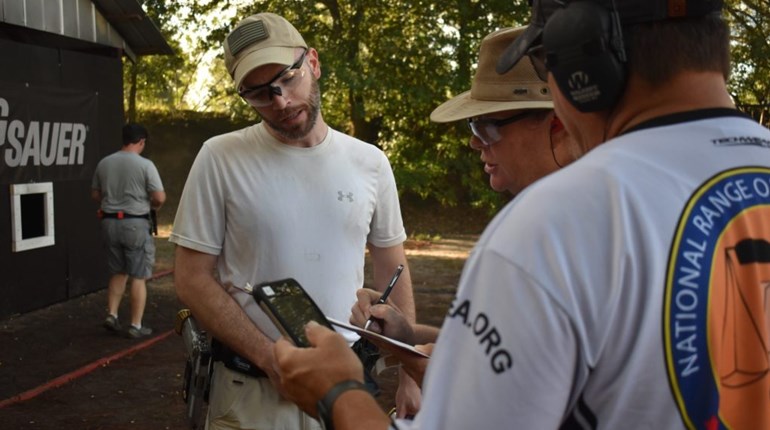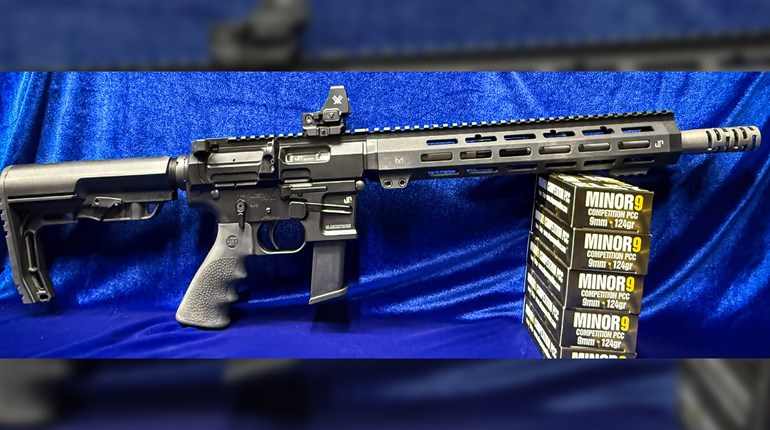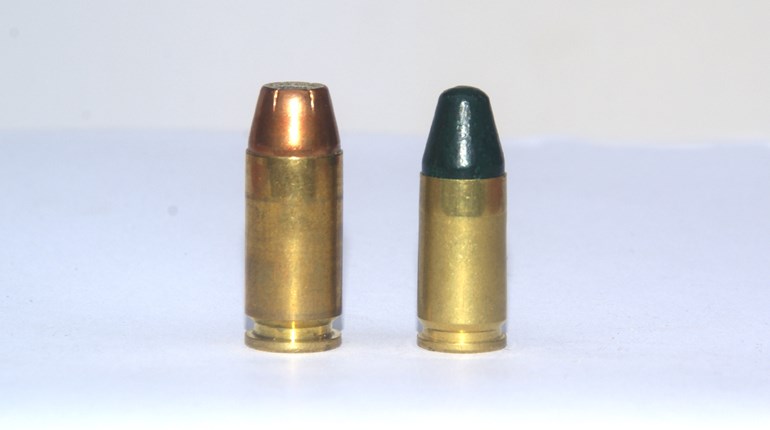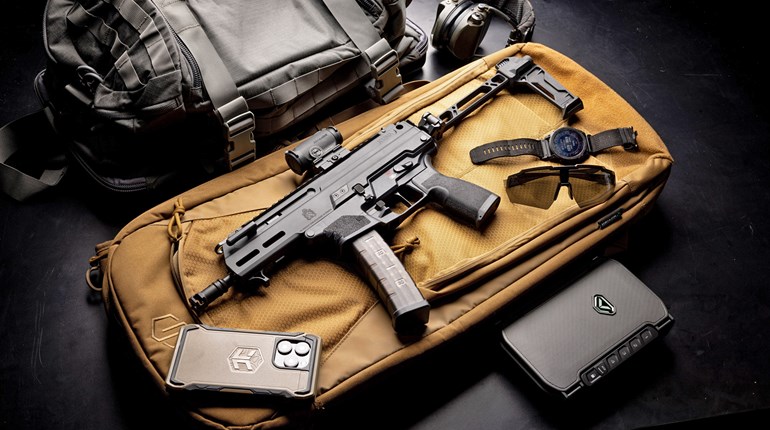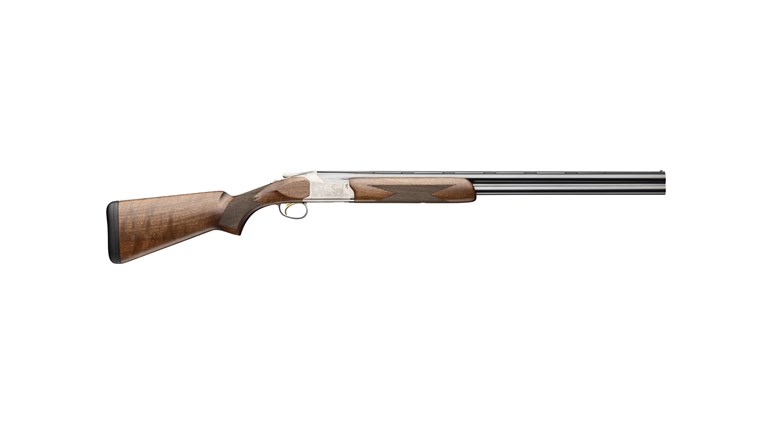
It is popular in some firearms training circles to dismiss practical shooting as something that’s ill-suited to defensive pistol skills. The common complaints are that shooting a match teaches you how to memorize the targets on a stage, not react to an imminent threat. Another knock on practical shooting is that because that typically only two hits are required on each target, it teaches you to shoot just two shots at a target and then go do something else. Lastly, some say that the gear used for practical shooting bears little resemblance to the gear you actually carry. Let’s address each of issues so you can see how practical shooting not only meshes well with a defensive lifestyle, but is in fact an essential element of becoming a responsible armed citizen.
Well THAT Wasn't Supposed To Happen
First off, it is true that planning out your moves on a stage will dramatically improve your score at a match. This is true of every aspect of our life, however, as planning ahead for anything is a pretty good idea. What matters for the armed citizen, though, is what happens when those plans change. I can create the perfect stage plan, but it’s how I execute it on demand that matters. The “beep” of a shot timer creates a level of artificial stress that sets off a massive adrenaline dump, which can cause your critical thinking skills to take a short vacation. As a result of all of this, that well-thought out stage plan now lies in ruins inside of your brain. Now it’s up to you to improvise on the fly as best you can in order to hit as many targets as possible as quickly as you can. For a defensive-oriented shooter, the stage plan isn’t about learning how to memorize a list of targets, it’s about learning how to come out ahead when everything around you just fell to pieces. If anything, memorizing a stage helps you "pre-visualize" your stage plan, and pre-visualization is an important part of the combat mindset. These sound like handy skills to have, and you can learn them at a match, so let’s move on.

The second stated reason not to shoot matches is that it teaches you to shoot just twice at something and then consider the target neutralized. Two shots from a pistol may or may not be enough to stop the threat, so teaching yourself to just shoot twice is probably not a good thing. However, the scoring in practical shooting isn’t based on shooting twice at each paper target, it’s getting two good hits on each paper target. This is a very important distinction. Lobbing two rounds in the general vicinity of the target is a bad idea “on the streets,” and it’s a bad idea at a match. Shooting a match helps you realize the difference between a good shot and a bad shot based solely on how the sights move during recoil and how the gun feels in your hand as the shot broke. This in turn allows you to make a quick “make up” shot and save your score on a stage, rather than take a substantial penalty for a missed target. Think that instantly knowing if your shot was on-target is a valuable skill to have in a defensive encounter? I sure do.
Because Race Gun
Lastly, let’s talk about gear. Yes, there are rigs out there which cost thousands of dollars and are completely inappropriate for daily carry. However, all the shooting sports have some sort of division devoted to “production” guns which you might find in holsters of armed citizens all across this country. In fact, one sport, IDPA, aka the International Defensive Pistol Association, is designed around everyday carry guns and has provisions for “backup guns” like the Ruger LCP or a snub-nosed revolver.
Let’s finish things off by mentioning two other reasons why you should compete regularly. First, you get comfortable with walking around all day with a gun on your hip. The biggest gap in firearms training is between people who get the training for a concealed carry permit and those who carry on a regular basis. Walking around a match with your pistol on your hip is an excellent way to get comfortable with having a gun on you, not near you.
The second reason is safety. Practical pistol is a very safe sport and will ingrain the rules of gun safety into your brain every time to start to shoot a stage. You’ll soon find that the gun safety rules come naturally to you, making you safer with your gun on and off the range.
You Meet The Nicest People At A Match
You may not get the urge to shoot a match every weekend, but regular participation in the shooting sports helps you test the performance of not only your gear, but your skills and mindset as well. Most importantly, though, it’s a lot of fun, with great people alongside you who want you to succeed. Give it a try, you just might have a good time while learning some crucial defensive skills.











